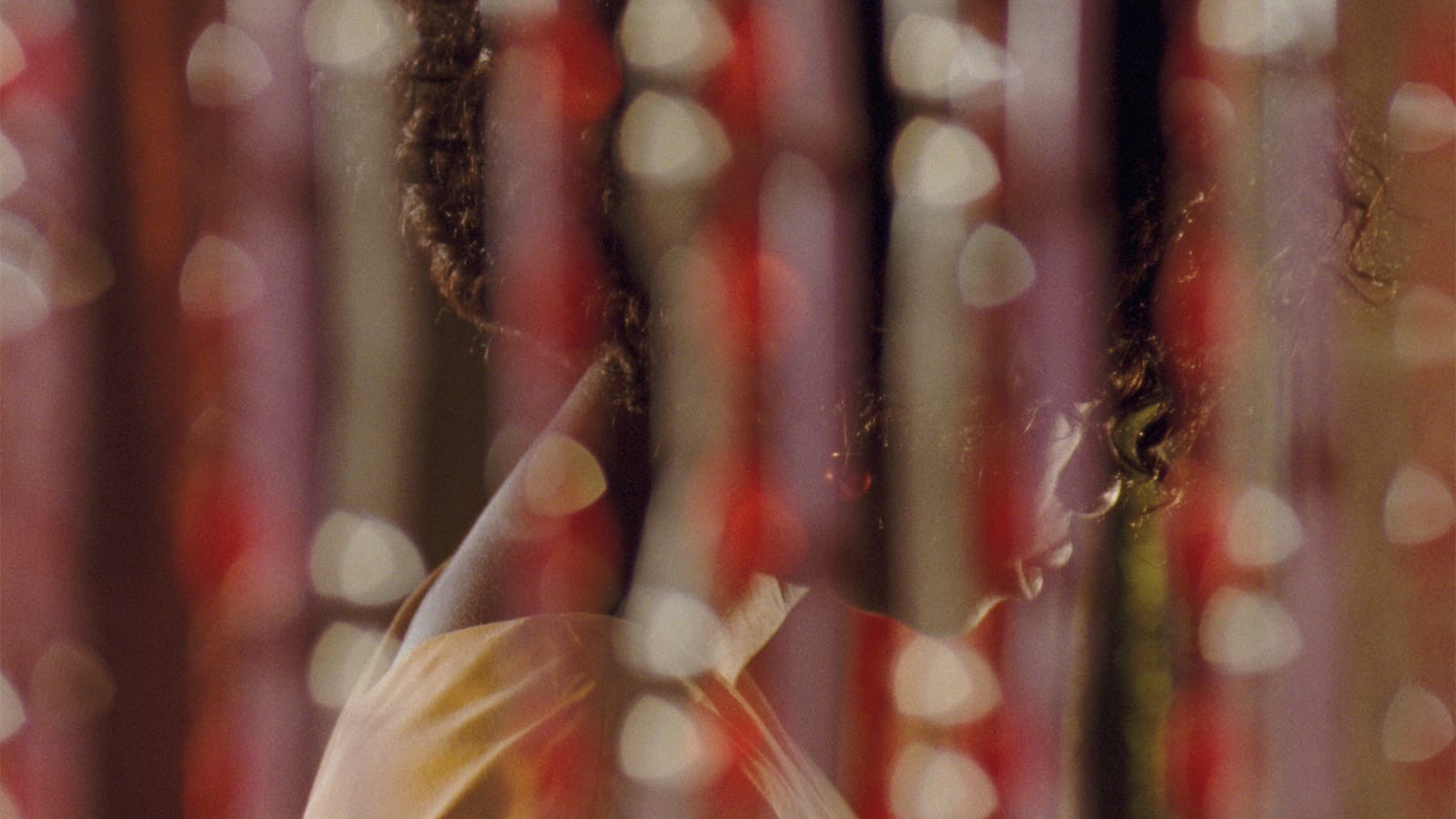Review: Eyimofe
This article appeared in the July 29 edition of The Film Comment Letter, our free weekly newsletter featuring original film criticism and writing. Sign up for the Letter here.

Eyimofe (Arie & Chuko Esiri, 2021). Courtesy of Janus Films
Brothers Arie and Chuko Esiri’s debut feature, set in their native Lagos, tells parallel stories of the continually thwarted efforts of two industrious individuals intent on crossing over to Europe and starting anew. The film opens with the acquisition of a coveted passport by Mofe (Jude Akuwudike). A middle-aged man and an indefatigable dreamer, Mofe works by day as an electrician in a ramshackle factory and by night as a security guard, to provide support for his adult sister and her two young sons and to save for his impending move to Spain. But when his sister and nephews are suddenly and tragically killed, Mofe’s long-gestating plans are put on hold. Instead, he goes about the business of burying the dead and finds himself ensnared in a web of unfeeling bosses and rigid bureaucrats, nerve-testing swindlers and hard-hearted cheapskates—including those within his bloodline.
After absorbing us in the increasingly exasperating ordeals of the ever-stoic Mofe, the Esiris shift their focus in the second half of Eyimofe. Temi Ami-Williams’s Rosa also holds two jobs—hairdresser by day, cocktail waitress by night—to provide for her pregnant teenage sister Grace (Cynthia Ebijie), with whom she plans on migrating to Italy. But Europe and its tantalizing possibilities remain intangible for both Mofe and Rosa, whose storylines intersect only once for a few fleeting seconds, amid the chaos of a hospital waiting room. The bifurcated structure of Eyimofe is not, in the Iñárritu mold, a mere display of crisscrossing narrative trickery and pizzazz, but rather is a means of describing the ways in which capital cannot help but color the days, dreams, and personal relationships of two would-be immigrants. For both protagonists, the unselfish devotion to vulnerable sisters inevitably leads to bargains with silver-tongued hustlers who barely bother to conceal their chicanery. But although their stories may obliquely echo each other, Mofe and Rosa face unique obstacles, a point provocatively driven home by the inextricability of Rosa’s body from matters of commerce and stability. On that front, Rosa is hounded by a pitifully infatuated older landlord (Toyin Oshinaike) desperate to make her his trophy wife, but her attentions are firmly set on the wealthy, white American visitor (Jacob Alexander) who has opened up his bed (and wallet) to her.
Such potentially sordid situations are relayed with refreshing, slow-burning patience; Eyimofe is a mellow, even-keeled film, its pace steadied by editor Andrew Stephen Lee. Shot on 16mm by cinematographer Arseni Khachaturan, the film’s beguiling, textured images are lush with warm color, lambent light, and no shortage of world-widening detail. Khachaturan imbues images of relative mundanity—Mofe repairing his neighbors’ electronics with devout resolve or wearily gazing at the bustle of Lagos at rush hour, Grace observing Rosa painstakingly make herself up for a date behind a dazzling curtain of ruby beads—with a hushed, multihued beauty that Lee’s unhurried pacing enables the viewer to bask in. The Esiris balance the shock and dread of their storytelling with the languor of lives lived in real time, training an eye on both days and nights of drudgery and the restful lulls in between labor, allowing their characters to catch their breath before the next shift.
The patience and restraint exhibited by the filmmakers is also present in Akuwudike and Ami-Williams’s understated performances. One of the primary pleasures of Eyimofe is observing how ambitions and aspirations percolate beneath the surfaces of the film’s leading actors. This is especially true of Akuwudike, whose portrayal retains a clear-eyed gentleness even as Mofe spirals through stages of grief, rage, and lassitude.
This quality reemerges fully in the film’s lovely epilogue, with Mofe newly eager to carve out a space in his native land. There’s a sense of hopeful closure here, which Rosa is curiously deprived of in her more melancholy arc. Concluding on a note of casually selfless generosity, Eyimofe embodies and evokes its themes rather than exclaiming them. Laden with conflict and rich with character detail, this is a film of expansive experiences eloquently rendered in near miniature. These individuated yet intersecting portraits of two strivers emerge from the seemingly ceaseless labor and soul-bruising compromises that are the everyday conditions of contemporary life for Lagos’s working class. Though, as Eyimofe makes clear, they are never its sum total.
Matthew Eng is a Brooklyn-based writer and critic who has previously contributed to Cineaste, the Los Angeles Times, and Reverse Shot, among other publications.







